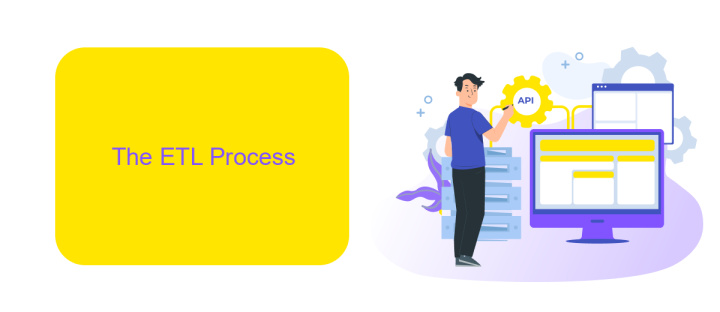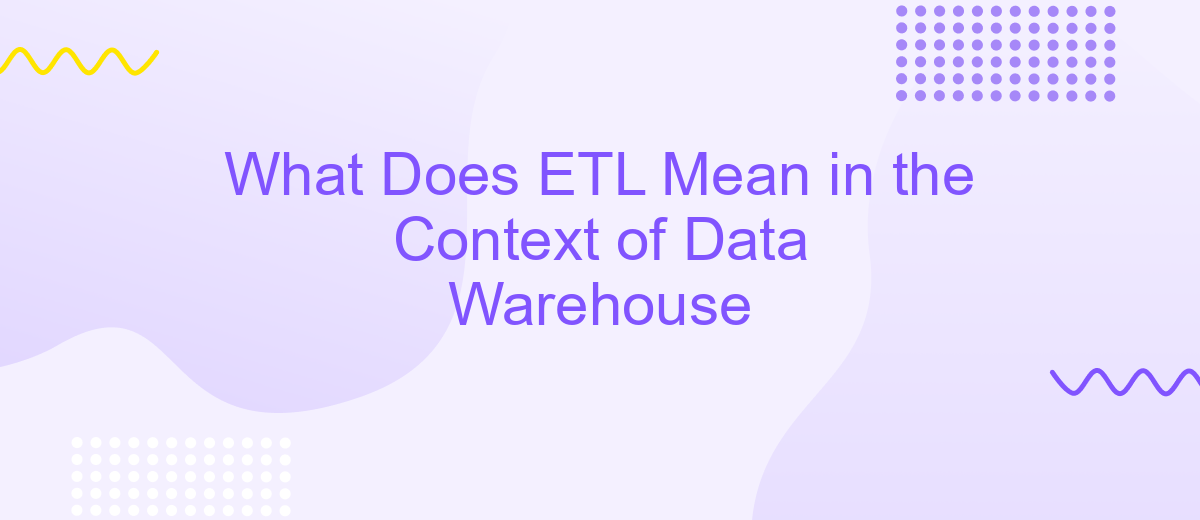What Does ETL Mean in the Context of Data Warehouse
ETL, which stands for Extract, Transform, Load, is a crucial process in the context of data warehousing. It involves extracting data from various sources, transforming it into a suitable format, and loading it into a data warehouse. This process ensures that data is accurate, consistent, and ready for analysis, making it indispensable for effective data management and decision-making.
Introduction
ETL, which stands for Extract, Transform, Load, is a crucial process in the context of data warehousing. It involves extracting data from various sources, transforming it into a suitable format, and loading it into a data warehouse for analysis and reporting. This process ensures that data is consistent, reliable, and ready for business intelligence activities.
- Extract: Gathering data from multiple sources such as databases, APIs, and flat files.
- Transform: Converting data into a uniform format, cleaning, and enriching it to meet business requirements.
- Load: Inserting the transformed data into a data warehouse or other target systems.
With the growing complexity of data ecosystems, tools like ApiX-Drive are becoming essential for automating ETL processes. ApiX-Drive allows seamless integration of various data sources and simplifies the ETL workflow, ensuring data is quickly and accurately prepared for analysis. Utilizing such services not only enhances efficiency but also reduces the risk of errors in data handling.
The ETL Process

The ETL process, which stands for Extract, Transform, Load, is a critical component in the context of a data warehouse. During the extraction phase, data is collected from various sources such as databases, APIs, and flat files. This data is often heterogeneous and unstructured, requiring a robust mechanism to gather it efficiently. Services like ApiX-Drive can facilitate this step by providing seamless integrations with multiple data sources, ensuring that the extraction process is both streamlined and reliable.
Once the data is extracted, it moves to the transformation phase, where it undergoes cleansing, normalization, and enrichment to fit the schema of the target data warehouse. This step is crucial for maintaining data quality and consistency. Finally, the transformed data is loaded into the data warehouse. The loading phase can be executed in batches or in real-time, depending on the requirements. Efficient ETL processes ensure that the data warehouse remains up-to-date, providing accurate and timely insights for decision-making.
Benefits of ETL

ETL (Extract, Transform, Load) processes offer significant advantages in the context of data warehousing. By automating the extraction, transformation, and loading of data, ETL tools streamline data integration from multiple sources, ensuring that data is accurate, consistent, and readily available for analysis.
- Data Quality Improvement: ETL processes clean and validate data, removing duplicates and errors, which enhances the reliability of business intelligence.
- Time Efficiency: Automation reduces the time and effort required for manual data handling, allowing organizations to focus on data analysis rather than data preparation.
- Scalability: ETL tools can handle large volumes of data, making it easier to scale operations as the amount of data grows.
- Integration Flexibility: Services like ApiX-Drive facilitate seamless integration between various data sources and ETL tools, simplifying the setup and maintenance of data pipelines.
Incorporating ETL processes within a data warehouse framework not only ensures data integrity but also enhances the overall efficiency of data management. By leveraging advanced ETL tools and integration services, organizations can make more informed decisions, ultimately driving business success.
ETL Tools

ETL tools play a crucial role in the data warehousing process, enabling the extraction, transformation, and loading of data from various sources into a centralized repository. These tools help organizations streamline data integration, ensuring that data is accurate, consistent, and readily available for analysis and reporting.
There are numerous ETL tools available in the market, each offering unique features and capabilities to meet different business needs. They vary in terms of complexity, scalability, and ease of use, making it essential to choose the right tool based on specific requirements.
- Talend: An open-source ETL tool known for its flexibility and extensive connectivity options.
- Informatica PowerCenter: A widely-used enterprise-grade ETL tool with robust data integration capabilities.
- ApiX-Drive: A cloud-based service that simplifies the integration of various applications and automates data workflows.
- Apache Nifi: An open-source data integration tool designed for data flow automation and real-time data processing.
In summary, selecting the right ETL tool is vital for effective data warehousing. Tools like ApiX-Drive can significantly reduce the complexity of integrating multiple data sources, ensuring seamless data flow and enhancing overall data management efficiency.
Conclusion
In conclusion, ETL (Extract, Transform, Load) plays a pivotal role in the context of data warehousing by ensuring the efficient and accurate movement of data from various sources into a centralized repository. This process not only facilitates better decision-making but also enhances data quality and integrity, making it indispensable for businesses aiming to leverage their data assets effectively.
With the advent of advanced integration services like ApiX-Drive, the complexities associated with setting up and maintaining ETL processes have been significantly reduced. ApiX-Drive offers a seamless and automated way to integrate various data sources, allowing organizations to focus more on analyzing data rather than managing it. By utilizing such tools, businesses can achieve a more streamlined and efficient ETL workflow, ultimately driving better outcomes and insights from their data warehouse.
FAQ
What is ETL in the context of a data warehouse?
Why is ETL important for data warehousing?
What are the main steps involved in the ETL process?
How can automation tools help in the ETL process?
What are some challenges associated with ETL?
Apix-Drive is a universal tool that will quickly streamline any workflow, freeing you from routine and possible financial losses. Try ApiX-Drive in action and see how useful it is for you personally. In the meantime, when you are setting up connections between systems, think about where you are investing your free time, because now you will have much more of it.

